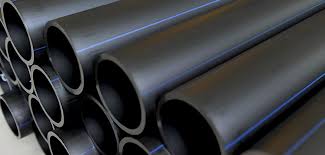Oct . 31, 2024 13:11 Back to list
HDPE Pipes for Safe Drinking Water Supply in Manufacturing Facilities
HDPE Pipe for Potable Water A Sustainable Solution
High-Density Polyethylene (HDPE) pipes have emerged as a prominent choice for transporting potable water across various applications. With their robust properties and environmental benefits, HDPE pipes are increasingly being adopted by water supply factories and municipalities worldwide. This article delves into the advantages of HDPE pipes, their manufacturing process, and their role in ensuring safe drinking water.
HDPE Pipe for Potable Water A Sustainable Solution
The manufacturing process of HDPE pipes involves advanced techniques that ensure high quality and durability. The raw material, HDPE resin, is subjected to processes such as extrusion or molding to form pipes that can withstand high pressures. These pipes can range from small diameters for household use to larger sizes for municipal applications. The flexibility of HDPE allows the pipes to be installed in various environments, adapting to changes in soil conditions and reducing the risk of breakage.
hdpe pipe for potable water factories

Another significant benefit of HDPE pipes is their lightweight nature, which simplifies transportation and installation. Compared to traditional piping materials, HDPE pipes are significantly lighter, leading to reduced labor costs and equipment requirements during installation. This advantage becomes particularly relevant in remote areas where access and logistics might pose challenges.
Environmental sustainability is also a critical factor driving the adoption of HDPE pipes. The production of HDPE is less energy-intensive than that of other materials, and the pipes themselves are recyclable. Many manufacturers now encourage the recycling of used HDPE pipes, thereby reducing plastic waste and promoting a circular economy. Furthermore, the longevity of HDPE pipes, which can last over 50 years with proper maintenance, means fewer replacements and repairs, further decreasing the environmental footprint.
Moreover, the smooth interior surface of HDPE pipes minimizes friction and allows for higher flow rates, improving water distribution efficiency. This characteristic is especially valuable for potable water systems, as it helps ensure that communities receive consistent and reliable water flow.
In conclusion, HDPE pipes offer a superior solution for potable water transportation due to their durability, safety, and environmental advantages. As more factories and municipalities recognize the benefits of this innovative material, the adoption of HDPE pipes is likely to expand. By investing in HDPE technology, we can ensure that communities have access to safe, sustainable drinking water for generations to come. The future of water management is undoubtedly leaning towards the incorporation of HDPE pipes as a standard practice in the industry.
-
32mm HDPE Pipes in Coil: Durable, Flexible, Easy Install
NewsAug.10,2025
-
140mm PVC Drilling Pipe: Durable & Efficient Well Casings
NewsAug.09,2025
-
Flexible DN50 HDPE Pipes in Coils: Durable & Easy Install
NewsAug.08,2025
-
DN100 PVC Pipes for Well Casings | Durable & Corrosion-Proof
NewsAug.07,2025
-
Durable DN500 HDPE Double Wall Corrugated Drain Pipes
NewsAug.06,2025
-
32mm HDPE Pipes Coil: Durable & Flexible Water Supply
NewsAug.05,2025

